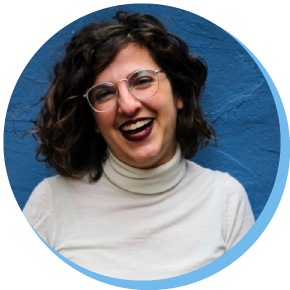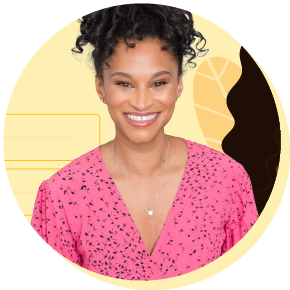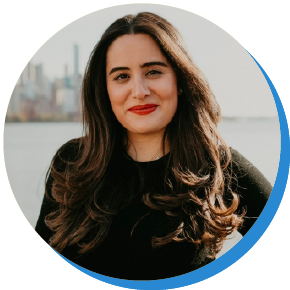Femtech founders share their insights on the space
March 9, 2022
We’ve previously covered femtech and related aspects of the industry on the PitchBook blog—from what femtech is to specific female-focused health startups founded by women. We highlighted several key players in femtech in our recent female founders and investors to watch in 2022 list, too. Today, we’re chatting with a few femtech founders to see what they’re most excited about and what challenges they continue to face as the industry evolves.
As a refresher, femtech refers to a range of health software and tech-enabled products that cater to female biological needs. A subcategory of healthtech and a fairly recent addition to the industry lexicon, femtech is a vertical whose name was coined by entrepreneur Ida Tin in 2016. Femtech startups shed light on the historical and systemic exclusion of women’s health needs within the healthcare system and create a range of novel solutions to address those unmet and under-met needs.
From menstrual cycle tracking to fertility and pregnancy, femtech had a huge 2021—with VC startups in the space raising a record high of $1.98 billion. 2022 is off to a good start, too. As of March 8, 37 VC femtech startups have raised more than $155 million. To learn more about some of the innovators in this space and what they're most looking forward to in their work in 2022 and beyond, keep reading!Cynthia Plotch, co-founder of Stix
Cynthia Plotch is the co-founder of Stix, a startup that provides convenient, discreet access to health products—including pregnancy and ovulation tests, as well as products for UTIs and yeast infections. Based in Philadelphia, Plotch co-founded the startup in 2019 alongside her former colleague, Jamie Norwood.Maya Hardigan, founder of Mae
Maya Hardigan is the founder of Mae, a digital health platform on a mission to reduce maternal health disparities for Black women. Based in New York City, Mae was founded in 2020 and provides birth planning tools, doula consults and gives pregnant people access to a marketplace of culturally competent maternal health experts and tools. We spoke with Maya last month about her background and Mae’s, as well as her insights as a first-time founder.
Oriana Papin-Zoghbi, CEO and co-founder of AOA
Oriana Papin-Zoghbi is the CEO and co-founder of AOA, a biotech company that partnered with a leading oncology researcher at McGill University to develop the first early-stage ovarian liquid biopsy diagnostic test. Based in the Boston area, AOA is a Y Combinator-backed startup, having raised $2.5 million in seed funding to accelerate development and clinical studies in 2021.
I am thrilled to see the increased investment activity in the femtech space. It is long overdue, and I am excited to see now that femtech and women's health are becoming a priority. Often it is dismissed for being such a small market segment when in reality women make up over 50% of the population and encompass over a $4 trillion market size. We still have a long way to go, but femtech's increased presence in the media and investor world will be greatly beneficial.Laura Katz, founder and CEO of Helaina
Laura Katz is the founder and CEO of Helaina, a startup that produces human-milk proteins designed to provide immunity benefits similar to breast milk. Using a proprietary fermentation process, Helaina is working to commercialize nature-identical milk—offering a nutritional option most-similar to breast milk. Based in New York City, Helaina has raised $25 million in venture capital funding to date.
As a refresher, femtech refers to a range of health software and tech-enabled products that cater to female biological needs. A subcategory of healthtech and a fairly recent addition to the industry lexicon, femtech is a vertical whose name was coined by entrepreneur Ida Tin in 2016. Femtech startups shed light on the historical and systemic exclusion of women’s health needs within the healthcare system and create a range of novel solutions to address those unmet and under-met needs.
From menstrual cycle tracking to fertility and pregnancy, femtech had a huge 2021—with VC startups in the space raising a record high of $1.98 billion. 2022 is off to a good start, too. As of March 8, 37 VC femtech startups have raised more than $155 million. To learn more about some of the innovators in this space and what they're most looking forward to in their work in 2022 and beyond, keep reading!
Cynthia Plotch, co-founder of Stix
Cynthia Plotch is the co-founder of Stix, a startup that provides convenient, discreet access to health products—including pregnancy and ovulation tests, as well as products for UTIs and yeast infections. Based in Philadelphia, Plotch co-founded the startup in 2019 alongside her former colleague, Jamie Norwood.
What are you most excited about in femtech’s evolution?
We’re so excited about the significant growth that we’re seeing in technology and innovation focused on women’s health. The world is getting smart to the fact that there’s a huge opportunity in this space, and more attention, more customers, and more money means we can finally invest in much-needed improvements. Women’s health has been all but ignored for decades—we’ve been dramatically underrepresented in clinical studies, underfunded and under-researched—and the space is more than ready for attention and innovation.What trends do you foresee impacting the space?
COVID has shown many of us the importance of flexible care. We’ve seen everything from telehealth to at-home delivery take off and are confident the space will only continue to grow. Consumers also expect more from brands when it comes to their health. Personalization allows consumers to get a tailored experience from their healthcare brands and better understand their own health.What challenges still exist and are top of mind for you in our work?
Unfortunately, funding, especially in the venture space, continues to be a challenge. As your own reporting highlighted, we’re at a five-year low for capital share going to female-founded teams, and women’s health issues are particularly tough when many of the people in the room don’t understand or can’t empathize with femtech issues. Additionally, the pandemic continually introduces new challenges in everything from planning to supply chain.Maya Hardigan, founder of Mae
Maya Hardigan is the founder of Mae, a digital health platform on a mission to reduce maternal health disparities for Black women. Based in New York City, Mae was founded in 2020 and provides birth planning tools, doula consults and gives pregnant people access to a marketplace of culturally competent maternal health experts and tools. We spoke with Maya last month about her background and Mae’s, as well as her insights as a first-time founder.
What are you most excited about in femtech’s evolution?
I’m excited to see such a dedicated focus on traditionally taboo areas of women’s health, like menopause, menstrual health and fertility. It’s great that we’re normalizing conversations around these health topics, and there’s significant value in creating forums where women can share experiences, talk about challenges and create innovative solutions.What challenges still exist and are top of mind for you in our work?
I think a continued challenge is working with healthcare payers to get these solutions to the masses. So many femtech applications are positioned as direct-to-consumer, and their value and impact realized by too few. Making a strong case for payer investment and committing to those partnerships to optimally support the health and wellbeing of all women is a harder path, but equally important.Oriana Papin-Zoghbi, CEO and co-founder of AOA
Oriana Papin-Zoghbi is the CEO and co-founder of AOA, a biotech company that partnered with a leading oncology researcher at McGill University to develop the first early-stage ovarian liquid biopsy diagnostic test. Based in the Boston area, AOA is a Y Combinator-backed startup, having raised $2.5 million in seed funding to accelerate development and clinical studies in 2021.
What are you most excited about in femtech’s evolution?
The last couple years have been transformational for femtech and women’s health. Women's health has become a highly publicized topic of discussion, particularly after several women have become more vocal around lack of sufficient healthcare. I have never seen so many stories about ovarian cancer diagnosis gone wrong—not because it wasn't happening before, but because women have become more vocal about how this has severely impacted them. This is just one example of many within women's health that have drawn attention over the last couple years. More noise tends to lead to more resources.I am thrilled to see the increased investment activity in the femtech space. It is long overdue, and I am excited to see now that femtech and women's health are becoming a priority. Often it is dismissed for being such a small market segment when in reality women make up over 50% of the population and encompass over a $4 trillion market size. We still have a long way to go, but femtech's increased presence in the media and investor world will be greatly beneficial.
Laura Katz, founder and CEO of Helaina
Laura Katz is the founder and CEO of Helaina, a startup that produces human-milk proteins designed to provide immunity benefits similar to breast milk. Using a proprietary fermentation process, Helaina is working to commercialize nature-identical milk—offering a nutritional option most-similar to breast milk. Based in New York City, Helaina has raised $25 million in venture capital funding to date.
What are you most excited about in femtech’s evolution?
I am most excited about the innovation we're seeing to support women on their fertility journey. We've come a long way when it comes to the cultural conversation around fertility and breaking the stigma of women sharing their experience. It’s also energizing to see the excitement from consumers and investors alike around what startups in the space are doing to support women and families through every stage of the journey.What challenges still exist and are top of mind for you in our work?
While we've made a lot of strides in the past several years, I feel strongly that federally mandated parental leave is critical to truly support women and their families and promote gender equality. Today only 23% of US employees have access to paid family leave through their employer, per the U.S. Bureau of Labor Statistics. Nearly 30% of women without access to leave dropped out of the workforce within a year after giving birth and one in five did not return for over a decade. Until federally mandated leave becomes available to all, women will continue to be held back and face disproportionate challenges professionally and personally.More on femtech
What is femtech?
Check out our blog post to explore the definition of femtech, its history and key drivers
See how femtech company Kindbody leverages PitchBook
Read our customer story about how Kindbody uses the platform to raise capital and map the competitive landscape
Get to know more players in the femtech startup space
Read our blog post about female-focused health startups founded by women
Female founders and investors
Read our blog post about female founders and investors to know
Comments:
Thanks for commenting
Our team will review your remarks prior to publishing.
Please check back soon to see them live.